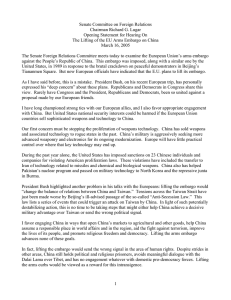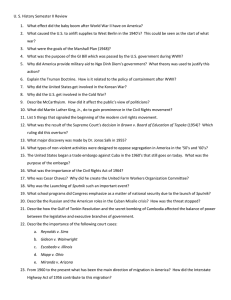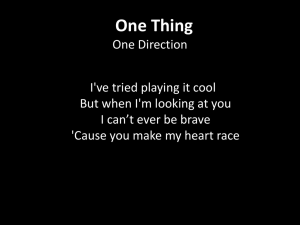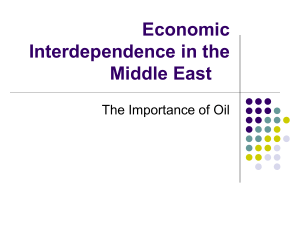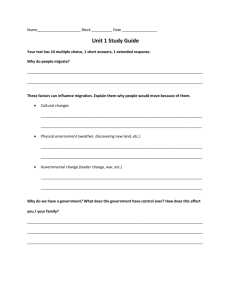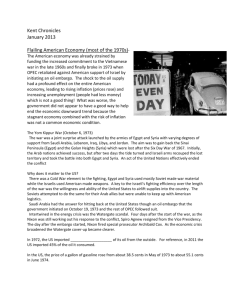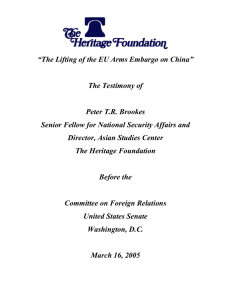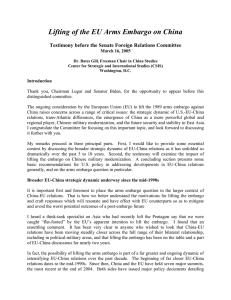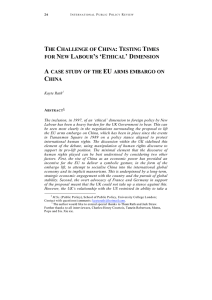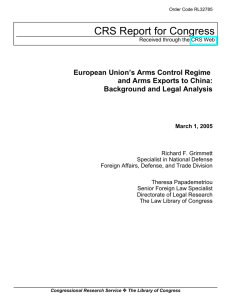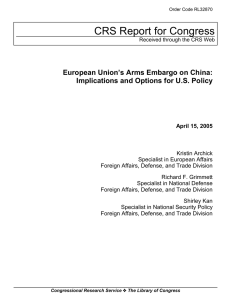Senator Joseph R. Biden, Jr. (D-DE)
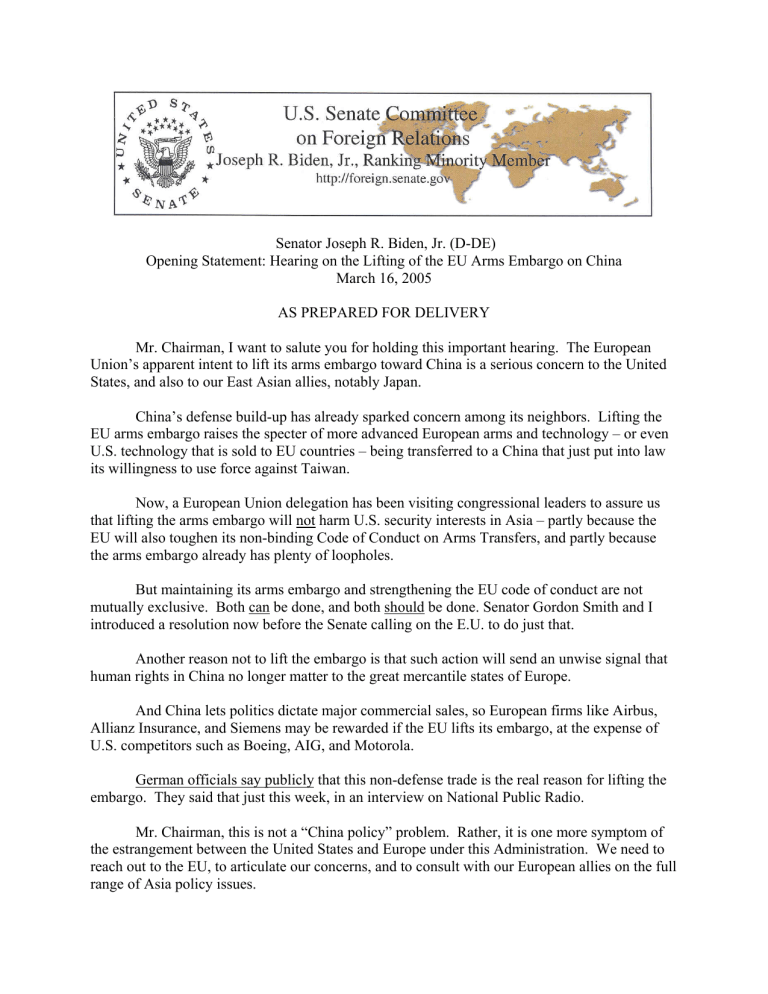
Senator Joseph R. Biden, Jr. (D-DE)
Opening Statement: Hearing on the Lifting of the EU Arms Embargo on China
March 16, 2005
AS PREPARED FOR DELIVERY
Mr. Chairman, I want to salute you for holding this important hearing. The European
Union’s apparent intent to lift its arms embargo toward China is a serious concern to the United
States, and also to our East Asian allies, notably Japan.
China’s defense build-up has already sparked concern among its neighbors. Lifting the
EU arms embargo raises the specter of more advanced European arms and technology – or even
U.S. technology that is sold to EU countries – being transferred to a China that just put into law its willingness to use force against Taiwan.
Now, a European Union delegation has been visiting congressional leaders to assure us that lifting the arms embargo will not harm U.S. security interests in Asia – partly because the
EU will also toughen its non-binding Code of Conduct on Arms Transfers, and partly because the arms embargo already has plenty of loopholes.
But maintaining its arms embargo and strengthening the EU code of conduct are not mutually exclusive. Both can be done, and both should be done. Senator Gordon Smith and I introduced a resolution now before the Senate calling on the E.U. to do just that.
Another reason not to lift the embargo is that such action will send an unwise signal that human rights in China no longer matter to the great mercantile states of Europe.
And China lets politics dictate major commercial sales, so European firms like Airbus,
Allianz Insurance, and Siemens may be rewarded if the EU lifts its embargo, at the expense of
U.S. competitors such as Boeing, AIG, and Motorola.
German officials say publicly that this non-defense trade is the real reason for lifting the embargo. They said that just this week, in an interview on National Public Radio.
Mr. Chairman, this is not a “China policy” problem. Rather, it is one more symptom of the estrangement between the United States and Europe under this Administration. We need to reach out to the EU, to articulate our concerns, and to consult with our European allies on the full range of Asia policy issues.
Europe, in turn, must toughen its Code of Conduct on all arms sales and should agree to consult with us on sales to China. I think we can get their agreement to do that.
What specific steps could the EU take?
2
• It could make the code of conduct an EU “Common Position.” This would make it more binding on EU member states, although it would still lack the force of law.
• It could dramatically improve internal transparency through: better reporting on actual sales, not just licenses; common categories for exports; more information on denials; and a no-undercut policy.
•
•
It could establish better end-use certification and monitoring.
It could penalize any diversion of European dual-use exports by halting further sales by all EU members.
• And, certainly, it could and should educate new EU members to bring their systems up to the code and ensure that they won’t be exploited by China.
Europe must also ensure that U.S. technology does not leak to China. If the EU cannot do that, there is a real risk that we will enact legislation that would constrain U.S.-European trade
•
•
• and harm the NATO alliance.
I am pleased that we have such an expert and articulate panel of witnesses today:
Peter Brookes of the Heritage Foundation
Dr. Bates Gill of the Center for Strategic and International Studies; and
Dr. Richard F. Grimmett of the Congressional Research Service.
•
•
I look forward to hearing their perspectives on:
• how we got to this point; the likely impact of lifting the EU embargo, both on us and on our allies in Asia; and how the United States and the European Union should pursue our common goal of seeing
China evolve into a peaceful and more democratic country, even as it achieves greater status as a regional and world power.
Thank you, Mr. Chairman.
2
